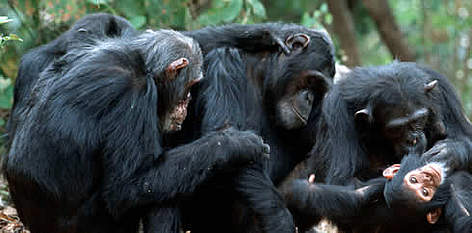The Royal
Zoological Society of Scotland and National Museums Scotland Contribute to UK’s
First Zoological Biobank
Photo credit rzss.org.ukThe Royal
Zoological Society of Scotland (RZSS) and National Museums Scotland are playing
a central role in the establishment of the UK’s first national zoological biobank
with the launch of their biobank facilities. Located at the National Museums
Collections Centre and Edinburgh Zoo, the infrastructure will improve storage
and distribution of animal genetic material for conservation and research.
The national
biobank is providing a hub for scientists across the UK, giving them access to
tissue, cells and DNA from endangered species and other wildlife, which can be
used in research and for conservation planning.
The Scottish
zoological biobank hub is being developed as part of the CryoArks Biobank,
funded by a £1 million grant from the Biotechnology and Biological Sciences
Research Council (BBSRC). The project brings together Cardiff University, the
Natural History Museum, National Museums Scotland, RZSS, University of
Edinburgh and the University of Nottingham to expand and link collections
across the UK.
The CryoArks
initiative is led by Professor Mike Bruford of Cardiff University who said,
“CryoArks
is making a step-change in the way that genetic material is curated and is
making it available to more scientists.
“With the
world facing unprecedented challenges for our wildlife and climate change,
having access to this data will help us find solutions to protect our planet
and its endangered species.”
As
Biobank ‘hubs’, National Museums and RZSS will provide the expertise for a
new level of sample storage and access to their samples by the establishment of
ultra-low temperature freezer facilities, laboratory space, and making all
samples available through an online searchable database. As a CryoArks partner,
they offer on-site assistance in archiving sample material, and provide advice
on embedding biobank sample collection during routine veterinary care and fieldwork.
Genetic data
helps us understand a great deal about our planet, such as measuring shifts in
biodiversity, discovering biological adaptations to climate and habitat change,
and finding out why particular species have unusual characteristics. The samples
held in the Biobank enable conservation researchers and scientists, now and in
the future, to access genetic material such as DNA from a wide range of
species, including those that are rare, endangered and extinct-in-the-wild, to
help ensure their future survival.
Dr Andrew
Kitchener, Principal Curator of Vertebrates, National Museums Scotland said
“This
project is crucial in enabling researchers to engage with a vast resource of
biological data samples which until now was difficult to access.
“We have
a responsibility to future generations to ethically collect these biological
samples, store them in appropriate conditions and make them available for
research. These specimens are vital to our understanding of the natural world
and our ability to map its changes and respond effectively to the demands of
researchers working in conservation and ecology.”
National
Museums Scotland has been collecting tissue samples from animals donated to the
collection for more than 25 years and this legacy of several thousand samples
has been added to the biobank, enabling quicker and easier access for
scientists across the UK.
Dr Helen
Senn, Head of Conservation and Science Programmes, RZSS said,
“Well
managed sample collections are critical research tools which can be used to
improve conservation outcomes for many threatened species. We are extremely
grateful to the multitude of researchers and zoological institutions who are
contributing samples that can be used by scientists for the benefit of wildlife
around the world.”
Wildlife
conservation charity RZSS also has a partnership with the European Association
of Zoos and Aquaria (EAZA) and it is one of the four hubs, alongside those in
Denmark, Belgium and Germany, of the EAZA Biobank. This is an initiative to
increase collection, curation, storage and use of valuable genetic resources
from animals held in EAZA institutions across Europe and the Middle East for
the purposes of population management and conservation research. The ultimate
goal is to biobank a sample from every living zoo animal so this data can be
accessed for future conservation management and research.
10
December 2020
 | | Peter Dickinson
Independent International Zoo Consultant |
|
|
















